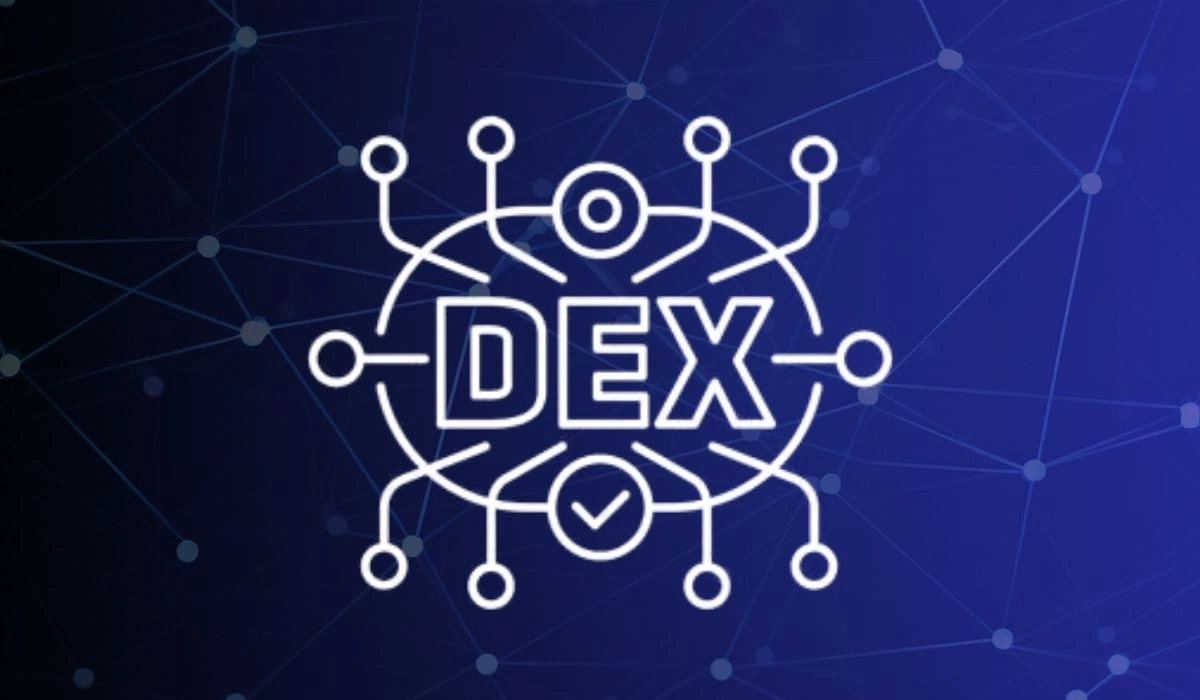Decentralized Exchanges (DEXs) are revolutionary platforms that enable peer-to-peer trading of cryptocurrencies without the involvement of a centralized entity or authority. These platforms are powered by smart contracts, allowing users to maintain control over their funds and private keys during trading. Unlike Centralized Exchanges (CEXs), which store user’s crypto and private keys, DEXs give traders complete access to their assets, lowering the danger of hacking or mismanagement. DEXs rely on liquidity pools and order books to process user transactions, significantly reducing transaction costs usually associated with trading on CEXs. Furthermore, DEXs are available worldwide, allowing anybody with an internet connection to trade cryptocurrencies without limits, and do not require user verification.
Despite their advantages, decentralized exchanges face obstacles such as lower trading volumes, slower transaction times, and a longer learning curve for new users. However, developments in blockchain technology continue to mitigate these concerns, making DEXs more user-friendly and efficient.
DEXs embody the Bitcoin movement’s key concepts of autonomy, inclusion, and transparency. As they mature, these platforms are positioned to play an important role in influencing the future of decentralized finance. In this article, we will be looking at the role of DEXs in the blockchain ecosystem, their working, and how they transform crypto trading.

Role Of DEXs In Blockchain Ecosystem
DEXs are essential components of the blockchain ecosystem, embracing the values of decentralization, transparency, and user autonomy. DEXs enable peer-to-peer trading of cryptocurrencies by eliminating the need for intermediaries, establishing them as a vital part of the broader crypto economy.
One of the primary contributions of DEXs is their ability to empower users unlike centralized exchanges, which compel users to trust the platforms and give up control of their crypto. DEXs allow individuals to keep their private keys, increasing security and lowering the danger of hacking or fraud. This is consistent with crypto ownership, which gives users full ownership and authority over their funds.
DEXs also promote innovation in decentralized finance. They serve as the foundation for DeFi (Decentralized Finance) apps by enabling frictionless token swaps, liquidity provision, and yield farming. DEXs provide a continuous and decentralized flow of digital assets by utilizing liquidity pools and automated market maker (AMM) procedures, promoting financial inclusion and democratizing access to financial services. Additionally, DEXs encourage censorship resistance and global accessibility. Without centralized authority, they allow users worldwide to trade freely, avoiding the obstacles imposed by traditional financial systems or governments. This promotes an open and inclusive financial ecosystem.
However, DEXs suffer some huddles including lesser liquidity relative to centralized exchanges, scalability related to the blockchain they are deployed on, and the requirement for user education. Regardless of these challenges, their promise to improve security, autonomy, and innovation highlights their significance.
In the blockchain ecosystem, DEXs are more than just trading platforms; they symbolize a transition towards a decentralized, user-centric financial future. As blockchain technology advances, DEXs will play a more important role in creating a more fair and transparent global financial system.
How DEXs Operate?
DEXs use blockchain technology to enable peer-to-peer trading of cryptocurrencies without the need for centralized intermediaries like traditional exchanges. Their operation is guided by smart contracts, which are self-executing blockchain programs that automate and secure user transactions.
The Liquidity Pool (LP)concept is a core component of DEX functionality. DEXs rely on users to provide liquidity by depositing tokens into LPs.These pools offer frictionless token swaps by utilizing Automated Market Maker (AMM) algorithms that compute prices based on supply and demand within the pool. This technique provides continuous trading while eliminating the need for centralized management.
Users can connect their cryptocurrency wallets directly to the DEX, avoiding the need to deposit funds into a centralized account. This ensures the users have control over their assets, improving security and autonomy. Despite their decentralized nature, DEXs have issues like charging higher gas fees when their native blockchain is congested, and complex interfaces that can discourage new users. However, they provide users with censorship-resistance global access and sovereignty over their assets. DEXs serve as a critical innovation, altering the way financial transactions take place in a decentralized ecosystem.
How DEXs Transform Crypto Trading In 2025?
In 2025, DEXs will reshape cryptocurrency trading by increasing decentralization, accessibility, and innovation. As blockchain technology advances, DEXs have become more efficient, scalable, and user-friendly, changing the way people interact with crypto assets.
One significant change that came about recently is increased scalability, thereby addressing an earlier limitation that resulted in higher fees and slow transactions during peak hours. With the incorporation of Layer 2 technologies and powerful blockchain networks, DEXs now provide faster, more cost-effective trading that rivals the performance of CEXs.
Another notable transformation is the implementation of cross-chain compatibility. Modern DEXs seamlessly connect several blockchain networks, allowing users to trade between tokens from different ecosystems, eliminating the need to rely on token-bridging platforms. This increased liquidity and created new opportunities in DEX-based trading. The user experience has also improved, with simple UI and educational resources making DEXs accessible to both new and seasoned traders. Furthermore, the rise of decentralized identification systems assures regulatory compliance while protecting user’s privacy.
DEXs in 2025 are more than just trading platforms, they are portals to decentralized finance, allowing users to trade, stake, and earn smoothly. DEXs continue to transform the cryptocurrency trading scene by emphasizing autonomy, transparency, and inclusivity, cementing their future in the crypto market.
Conclusion
Decentralized exchanges are changing the face of cryptocurrency trading by placing consumers in complete control. They represent a shift away from centralized authority while providing a transparent and secure environment for digital asset transactions.
DEXs are establishing a financial future defined by trust, efficiency, and user empowerment, thanks to their capacity to stimulate innovation and diversity while addressing obstacles with advanced technology. Their non-stop progress shows the boundless potential of decentralized finance.

